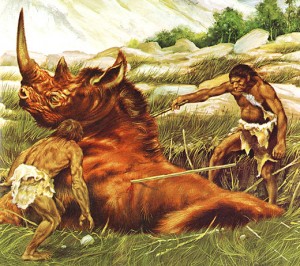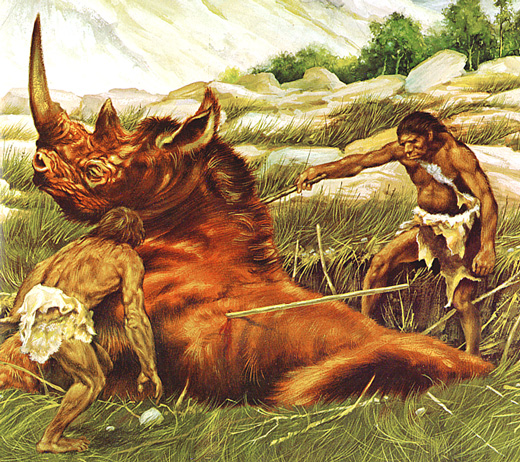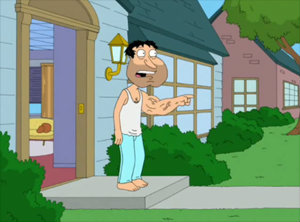By: Ryan Kohlsdorf
 Since the Industrial Revolution, we have been in the midst of a growing global trend of consumption. This began with an economic inclination towards convenience, efficiency and enhanced production methods. Along the way, we began to experience a number of problems with this model. Consumption, especially as it has been practiced more recently, is not a sustainable way of life. For starters, most products are designed to be disposable and a number of products are individually wrapped. In addition, new versions of more lasting products are strategically marketed to enable a slow release process that basically creates a price schematic in order to maximize profits on separate versions. Although these tactics may be profitable from a capitalist perspective, they are certainly not sustainable. Further these same tactics have led to an absurd amount of waste and, more importantly, to unhealthy behaviors towards consumption and disposal. Given the rapid onslaught of climate change due to waste management and oil use (often due to shipping goods but also to general transportation), there is an increasing need to move towards more sustainable models.
Since the Industrial Revolution, we have been in the midst of a growing global trend of consumption. This began with an economic inclination towards convenience, efficiency and enhanced production methods. Along the way, we began to experience a number of problems with this model. Consumption, especially as it has been practiced more recently, is not a sustainable way of life. For starters, most products are designed to be disposable and a number of products are individually wrapped. In addition, new versions of more lasting products are strategically marketed to enable a slow release process that basically creates a price schematic in order to maximize profits on separate versions. Although these tactics may be profitable from a capitalist perspective, they are certainly not sustainable. Further these same tactics have led to an absurd amount of waste and, more importantly, to unhealthy behaviors towards consumption and disposal. Given the rapid onslaught of climate change due to waste management and oil use (often due to shipping goods but also to general transportation), there is an increasing need to move towards more sustainable models.
Before we can effectively move towards more sustainable models, it is crucial that we understand the parameters that set up these conditions in the first place. More specifically, what were the ideologies and tactics employed that led to a consumer culture? What, if anything, can be done to understand the ways in which we are all affected? Finally how can we understand and change our behavior to live more effectively and reduce our consumer footprint?
The use of media plays a crucial role in the consumer cycle since, generally speaking, the media (in all forms: T.V., billboards, advertisements, movies, internet, news etc.) is our access to information and is the place where our desires are created. In fact, it has long been thought that these advertisements are well designed to psychologically manipulate us. Most people are aware of the terminology: subliminal programming, color association, reality fabrication, ad prevalence etc. However, when our free choices come into question, many of us refuse to admit that our desires can be manufactured even though, as it turns out, this may be true. Before we can examine the implications of psychology on consumption, perhaps it may be useful to begin with our biology.
Within the primate family, we are an exceptional species. To begin with, we are the only primate that does not contain a fully haired body. Relatively speaking, we are bare with skin exposed, with the exception of the head, armpits, and genitals. We also have a very sophisticated brain, which was probably quite useful in the initial move from our primate ancestors — frolicking carefree in the jungle, eating fruit as they came upon it — to our hunter-gathering origins. It was a crucial step for humanity. We no longer were purely nomadic creatures, moving from place to place, but evolved instead to become more carnivorous. It is debatable why we ever left the lush forest and began searching for meat but nonetheless we did, and through that evolution a few changes from the primate way of life were necessary.
For one thing, individual territory became a necessity. Living as hunters and gatherers we now had a new requirement: storing food and preserving it in case resources became scarce. This would require a home space and for that reason you notice marked differences between humans and other primates. Defecation and waste management are more closely monitored. We are slightly more territorial in terms of space and for longer periods of time. And finally, provided these requirements are met, we reproduce in these areas, providing ample time for a child to safely grow and develop (the full human development takes 21 years). This is an important point: since hunting was not our nature, these lifestyle changes emphasize learned behaviors rather than simply instinct. This evolution, believe it or not, is crucial for us to understand consumer behavior. Since we evolved to be a hunter-gatherer, our habits were greatly altered. Some of this is obvious, in other places less so. Nonetheless we indubitably possess these origins. As time went on, the invention of agriculture, the domestication of the animal and the building of increasingly elaborate home structures have evolved us from hunter-gatherer to grocery store shopper. How could it be so?
 As a hunter gatherer, we retained the behavior of building the safe base (i.e. the home) and continued the hunting strategy only we now project this impulse on a different platform. We are now the workaholic, grocery store shopper desperately trying to fulfill our needs. On top of that, we have taken complete control of our environment to the extent that virtually anything encountered on a daily basis in the city is manipulated. This overstimulation (particularly when shopping) leads us to buy more than we need. We developed a separate reward function through evolving to hunt which enabled the hunt to be a satisfaction in itself. This reward system enabled us to ritualize the act and thus bring home the hunt for the rest of the members of the society so that an individual wouldn’t gorge himself, leave the remains, and continue on thinking nothing for the welfare of the rest of community. Unfortunately, now when we go shopping, we still experience the same feeling as our ancestors did when hunting (think of the feeling of buying those new shoes that you love), but we are in an environment that provides more things than we need. We evolved in a place of scarcity and consequently had a desire to take as much as possible, given the opportunity, but now conditions have flip-flopped.
As a hunter gatherer, we retained the behavior of building the safe base (i.e. the home) and continued the hunting strategy only we now project this impulse on a different platform. We are now the workaholic, grocery store shopper desperately trying to fulfill our needs. On top of that, we have taken complete control of our environment to the extent that virtually anything encountered on a daily basis in the city is manipulated. This overstimulation (particularly when shopping) leads us to buy more than we need. We developed a separate reward function through evolving to hunt which enabled the hunt to be a satisfaction in itself. This reward system enabled us to ritualize the act and thus bring home the hunt for the rest of the members of the society so that an individual wouldn’t gorge himself, leave the remains, and continue on thinking nothing for the welfare of the rest of community. Unfortunately, now when we go shopping, we still experience the same feeling as our ancestors did when hunting (think of the feeling of buying those new shoes that you love), but we are in an environment that provides more things than we need. We evolved in a place of scarcity and consequently had a desire to take as much as possible, given the opportunity, but now conditions have flip-flopped.
On top of that, most advertisements tap into other evolutionary responses, especially sex and hierarchical power, associating certain objects with status and power (another important drive in our relatively recent history). We are now in a situation where we are buying things out of control and more than we need. And what happens to the waste? We throw it away. We consume more and find ourselves less happy and confused about how this could be possible. The illusions prevail, and we just can’t seem to get it right. The happiness acquired from the purchase of shoes last only two weeks, and then we buy another pair. (This makes evolutionary sense since when food is scarce the drive to hunt MUST continue.) Furthermore, working has become a symbolic act for hunting and the office space is equally as competitive as our old hunting troops, perhaps even more so since the sense of fulfillment associated with this drive has been diminished.
Perhaps the most overlooked facet is what most of these drives have in common: they were initially adaptations to promote community mindedness. A good briefing in biology and anthropology will show you that it was our cooperation that enabled us to survive. Through living in small communities, we were able to prosper. Unfortunately, we are dangerously close to forgetting our social origins; social darwinist theories prevail. Could it be that through understanding our cooperative tendencies we could fulfill the gaping hole that no amount of chocolate seems to fill? I think so, and a number of others do too. In fact, it turns out that many people who feel lonely on a regular basis experience depression and may resort to shopping and overeating as coping mechanisms. Although perhaps these activities may be attempts to generate community by bringing food and goods, in our modern world it has increasingly become a selfish or isolated endeavor.
If we are to progress, it is crucial for us to understand where we come from, both individually and as a species. Consumption is perhaps the problem of the 21st century. In a world with an over abundance of smart phones, there shouldn’t be any stupid people. And with this kind of connectivity, there definitely shouldn’t be so many lonely people. We have the world at our finger tips but many feel as isolated as ever. Hopefully, as we begin to understand our origins we can create new models, ones that aren’t based on dominance and competition but instead acknowledge our biological necessity to cooperate and feel connected.
____________________________________________________________________________________________________
More from this author:
It’s Got the Whole World with no Hands: Atheism and the Contemporary Scientific Worldview
The Devolution from Hunter Gatherers to Consumer Culture: We No Longer Live Life, We Consume It,




Edward
22 Sep 2012Amen! As an outdoorsman who hunts & fishes, and (when my back lets me) have a large vegetable garden, I know what you mean. “You kill Bambi” they say to me. “NO, I don’t hunt fictional characters” I reply (and if I did I’d be after much bigger quarry than Bambi). “Besides, that hamburger you had for lunch was once a cow. ” I think people are still sort of hunter/gatherers — it’s just they do it at the grocery store where all the hard, dirty work is already done, no one gets blood on their hands, and they somehow feel self-righteous about it. I KNOW where my venison came from, my fish, most of my vegetables. And they are laced with the sweet taste of satistfaction of a job well done & self-suficiency. Those who denegrate the hunters & sportsmen & women are the soft underbelly of society that couldn’t take care of themselves or feed their family without a grocery store and a miocrowave, IMO.